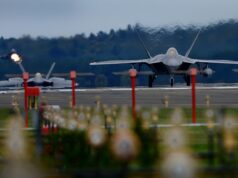The security and resilience of 5G networks is of paramount importance to the UK, say industry representatives.
In response to evolving telecoms security policies and lessons learned from the 5G Testbeds and Trials Programme, the UK5G Testbed & Trials Working Group have launched a Security-Sub Group to address 5G security challenges.
Paul Beastall, Head of Strategy for Cambridge Consultants and UK5G Advisory Board Member is Chair of the Testbed & Trials WG, explains why the Sub-Group is important:
“We see the 5G Testbeds and Trials testing use cases that involve both mission critical data (such as between high speed vehicles or factory machines) and personally sensitive data (such as in a health or social care setting), highlighting how 5G solutions will need to have security at the heart of their design. I am delighted that we are able to build on the great capability and expertise within the UK to ensure that we are able to develop and prove security best practice alongside high value use cases that will deliver value to end users.
After careful consideration, we are delighted to announce Mark Hawkins, QinetiQ Fellow and 5G Technical Lead, will Chair the Security Sub-Group and work alongside the following members to provide guidance to UK testbeds as they develop and test their respective security principles and policies.”
The following firms are involved.
- Woon Hau Chin Toshiba Research Europe
- Stephen Douglas Spirent Communications
- Tracey Sheehan Utility Technology Council
- Francesca Serravalle Colt Technology Services
- Mark Shepherd National Technical Assistance Centre (NTAC)
- Adrian M National Cyber Security Centre (NCSC)
- Anas Tawileh Systematics Consulting Inc
- Saj Huq Plexal (LORCA)
- Ciara Mitchell ScotlandIS
- David Cuckow British Standards Institution (BSI)
- Darwin Darwin CGI
- Greig Paul University of Strathclyde
- Mike Lee Ofcom
“I am excited about the launch of the UK5G Security Sub-Group, and look forward to chairing the new group. We have a strong team of people from across government, industry and academia with a broad range of expertise covering security, 5G, standards, regulation, research and use cases. This group can significantly contribute to the collaborative challenge of making security a key enabler for realising the benefits of 5G use cases.” – Mark Hawkins
The Security Sub-Group, along with consortia teams and UK5G’s associate partners, will identify security gaps, solve security problems and showcase good end-to-end security practices.













Decisions based on the recommendations of the Scientists (or in this case techies) is becoming popular. Long may it continue.
If we want the benefits of Chinese technology without the risks then it has to run in a secure environment, so I applaud this effort.
I laughed when I saw NTAC listed there.
Hardly a “firm”,NTAC are based within Thames House, are a part of GCHQ and are involved in breaking encryption to read the emails of those targeted with a warrant, as well as being involved in mass domestic telephone interception.
Look up something called “Preston”
They are more interested in finding back doors to break into the system than its security I feel.
The NCSC is more apt, being concerned with cyber defence.
Hi Daniele, hope you’re well?!
I’ve not come across NTAC before, although I’ve heard of the NCSC, and their “explainer” blog posts are pretty interesting. Sounds like NTAC might be quite pro-Huawei in many ways then, seeing as it’s the general poor security of the company’s products that has been the biggest concern of the actual experts so far…!
Morning Joe.
NTAC were once GTAC – “Government Technical Assistance Centre” and were created by Tony Blairs government, mainly targeting criminal gangs and terrorist emails over the internet.
In more recent times they have been brought under GCHQ control, though still within Thames House.
For the best recent article of NTAC see Duncan Campbell’s expose of Preston.
https://www.duncancampbell.org/content/big-brother-born-and-we-find-out-15-years-too-late-stop-him
Those of a certain age here might remember “Tinkabell” the Post Office / BT phone intercepts of the 1970’s and 80’s. NTAC is the modern version.
D Campbell happened to expose Tinkabell too, along with Zircon, GCHQ itself, the ABC trial, Echelon, and other stuff.
A veritable thorn in the governments side! I don’t agree with him myself as I believe this stuff to be necessary. But I’m happy to absorb what he learns.
Cheers.
That is mindblowing on many levels, I honestly didn’t know that the intelligence services held so much.
I have to admit to being fairly libertarian in some of my views relating to personal data etc. I’m not against governments having the capability to obtain informaiton regarding peoples’ calls, emails and everything but I am opposed to the underlying principle that anyone could be guilty, so mass surveillance is justified. I still think there should be a proper legal process applied in order to get at this data, and the article implies that’s not always the case. I would love the government to prove their assertion that terrorist attacks were thwarted by mass surveillance of people that they weren’t already investigating. I don’t think they’d be able to.
That said, I do understand the other argument. I may not think the government always makes the right decisions, but I do for the most part trust them to have my best interests at heart (or at least heart-adjacent).
Hi Joe.
You didn’t? That article is just NTAC, let alone the rest of GCHQ and NSA.
Satcom is taken by Morwenstowe, Menwith, Seeb, Ayios Nikolios. The Atlantic undersea cables are all accessed carrying our phone calls and internet. Same with the cables in the Persian Gulf, and elsewhere yet undisclosed. Irton Moor listens to radio communications. In Manchester the internet is accessed. In Cyprus several sites listen into the Middle East, monitor airspace, triangulate signal locations, and pinpoint individuals. Same in the Falklands, Ascension, Gibraltar. That’s just some of Britains GCHQ capability. The military contribute in several areas too.
We take more Metadata than NSA. And then multiply that vast collection capability many times over as the UK has access to most of the intel product of the USA, Canada, Australia, and New Zealand.
I read once of a GCHQ employee passionately asking why are we perfectly happy to allow our spending habits to be trawled by all and sundry so companies can sell us their goods, yet GCHQ cannot access a tiny bit of that data to try to prevent people being blown up? I agree with him.
The metadata, phone calls, email, fax and texts intercepted run into billions, just in a week. But just because the systems in place can intercept the stuff doesn’t mean there are people reading it all! There is too much. It is then discarded after a short time, but if the intelligence agencies have found just a tiny lead in that collection to prevent an atrocity or provide key intel on other peer states they have my full support.
One interesting fact is how they get round targeting home nationals. The Americans do it for us here, and we provide the same service to them.
Both GCHQ and NSA can then honestly say they don’t spy on their own people. Technically they don’t!
The intelligence area is one you’ve probably gathered I’m as fascinated by as the military, and it’s just as important in my opinion. We are truly world class and in an intelligence alliance other nations look on with envy.
Call me educated! That’s pretty comprehensive, I feel like there’s no point running adblockers and deleting cookies now… I guess it’s just a principle for me now.
Like I say, I understand the reasoning for mass surveillance, and I appreciate that not everything is scrutinised all the time. I do feel that my presence on here and other similar sites, and my supporting Google searches has probably made me subject to a closer look than others- although probably still only automated.
I still feel that it is not the government’s place to be assuming guilt in their population, so it’s more a principle thing than anything else.
It’s a bit of a sneaky workaround that GCHQ and the NSA have there, but I guess it’s not at all surprising!
Lol! You’re fine Joe! I’m still around and have not had SB knocking on the door. Depends what you mention on line.
I don’t ever mention anything here that is not already known.
Yes it’s neat for them. One of the reasons ministers in Parliament are so vague about anything whatsoever about RAF Menwith Hill.
There’s actually lots of open source research available that is already out there, especially by CND and CAAB, Campaign for Accountability of American Bases, concerning Menwith.
The RAF title is a charade, simply because of the base commander being RAF.
The UK’s fibre optic telephone network links directly into it!
You can see the exact location on Google Earth.
Anyway, I’ve gone well off piste from 5G!
Cheers mate.
Ok, but how do you initially determine if somebody is nefarious, a criminal or up to no good? In the UK alone there are over 60 million people, where around 2/3 are adults. Within that group you’ll have just below 1% who are generally up to no good within the criminal fraternity. Then within the adult group there will be less than 0.05% who could be considered as terrorist sympathisers (30,000). But within that group there will only be around 100 who will actually act on their beliefs (I am not counting Northern Ireland). So with the Country’s demographics and perhaps ethnicity you could perhaps filter down to a certain group, but it is not guaranteed. This is why organisations such as GCHQ do a broad sweeps on personal communications looking for key words. If you’ve got nothing to hide, why worry?
It’s a good question, and I don’t pretend to have the answers. I just think it’s out of line and a bit of a slippery slope to have a government effectively holding it’s citizens under suspicion until proven otherwise. That’s fundamentally the opposite of how our justice system is supposed to work.
I am not expecting the British government to suddenly start using these powers to repress the citizenship of the UK, and I don’t have anything to hide, as it were. I just don’t like the principle of it.
I’ll freely admit it’s something of and idealistic position to hold!
Sorry, NCSC. They occupy a couple of floors in an office in Victoria. And are a the “public face” of GCHQ. Their predecessor was the CESG – Communications and Electronics Security Group, which was within Benhall itself at Cheltenham.
NCSC are involved in cyber defence of things like finance and Critical National Infrastructure, and have absorbed UK CERT. Purely defensive though, as far as is publicly known.
NTAC and Huawei! The irony. Yes, I guess so!
Talking of wider cyber stuff, this Covid nightmare has probably contributed to the delay in announcing the “National Cyber Force” which will be jointly run by the MoD and GCHQ, and will be the offensive side where the UK can fight back. That capability will be expanding rapidly.
Cheers Joe
I’m glad we’re getting into offensive cyber and these areas, it’s going to be increasingly important- not least because it gives us a cyber defence at the same time.
Confidence while using Chinese hardware? hahahaha
Our 5g, nuclear staions & steel, all under PRC comtrol. More “leverage” to blackmail us with. If our own capaitalists can’t back & invest in the nations that give them the freedoms they enjoy & ruthlessly exploit, what good are they?
As for the PRC, how are their promises over Hong Kong working out now?